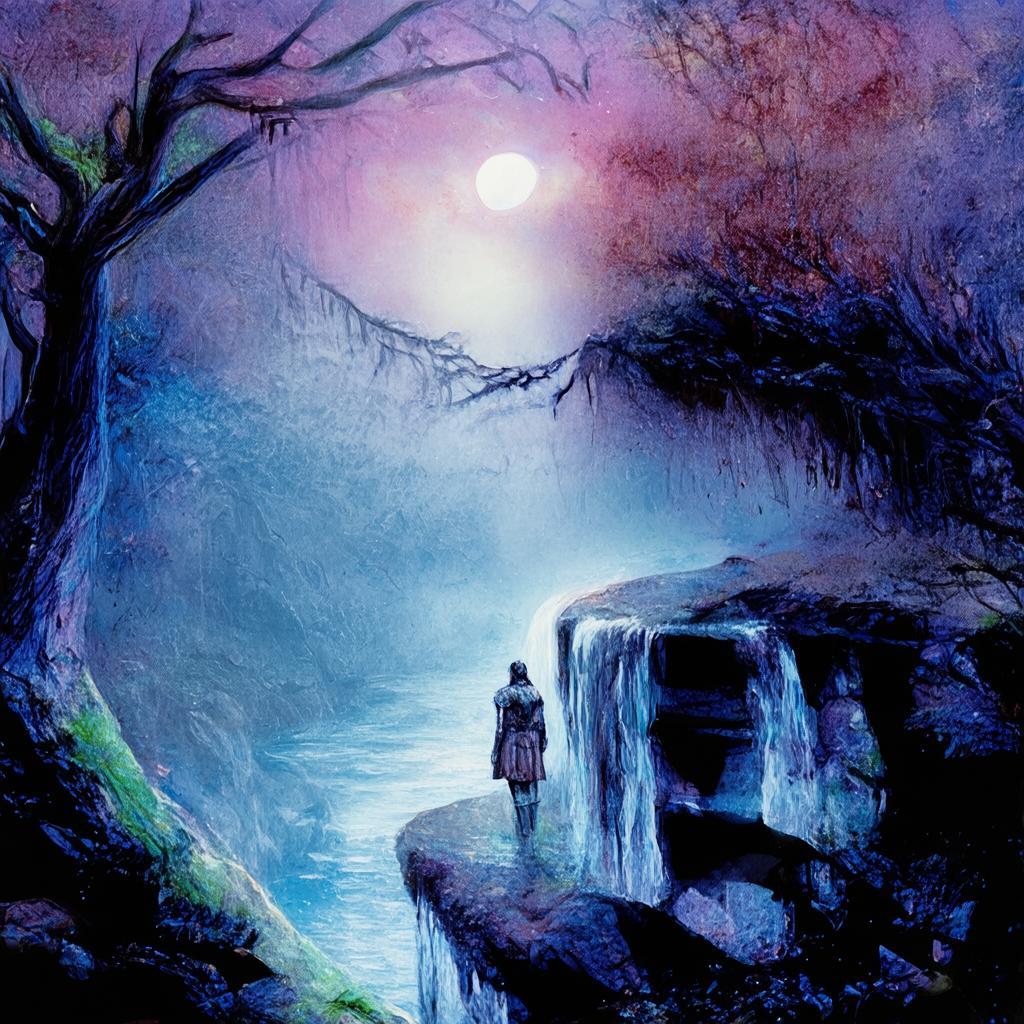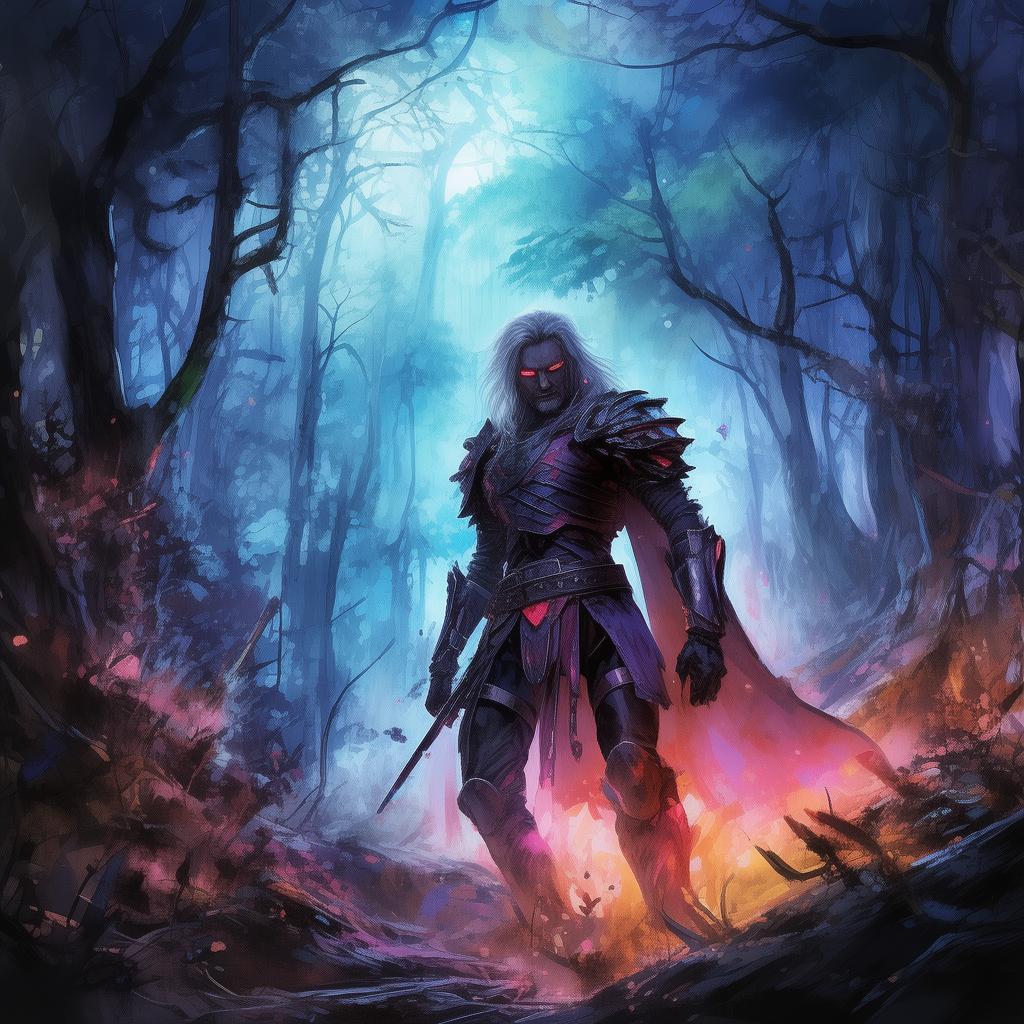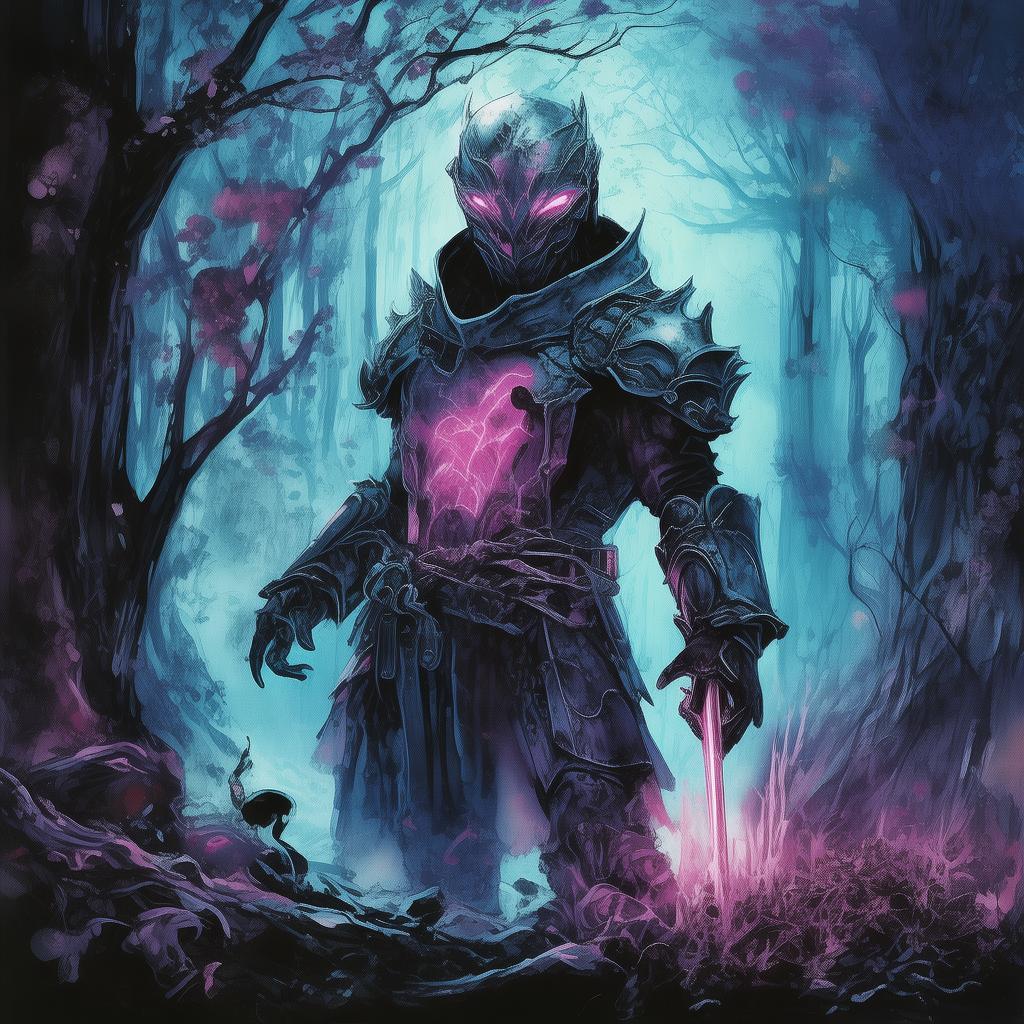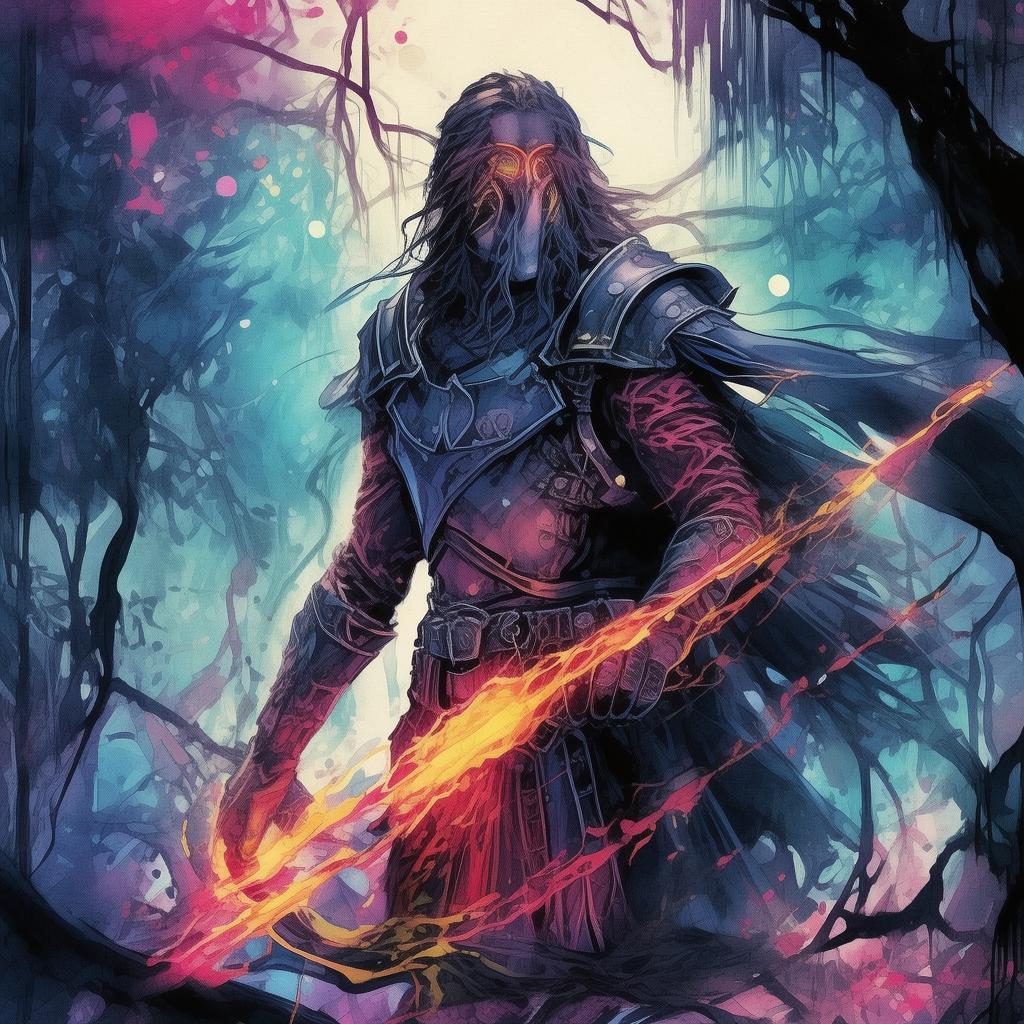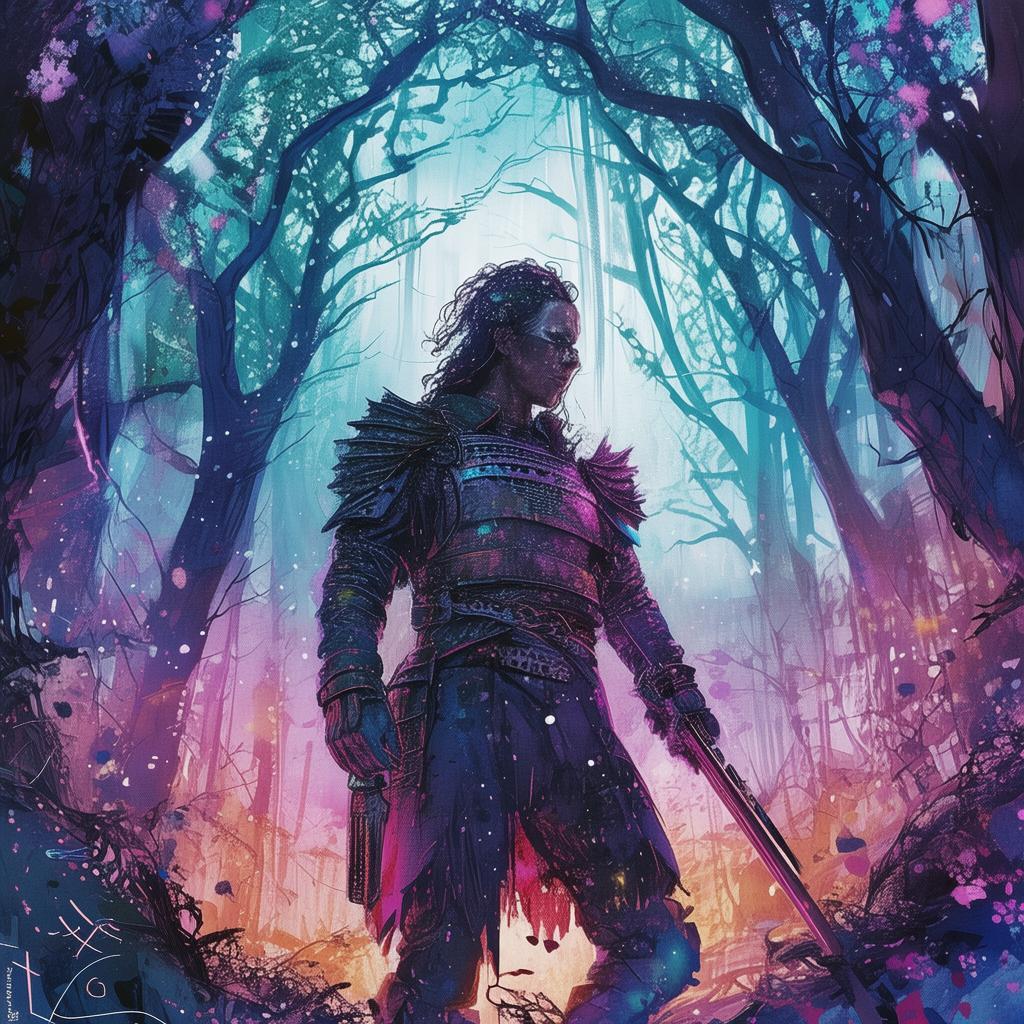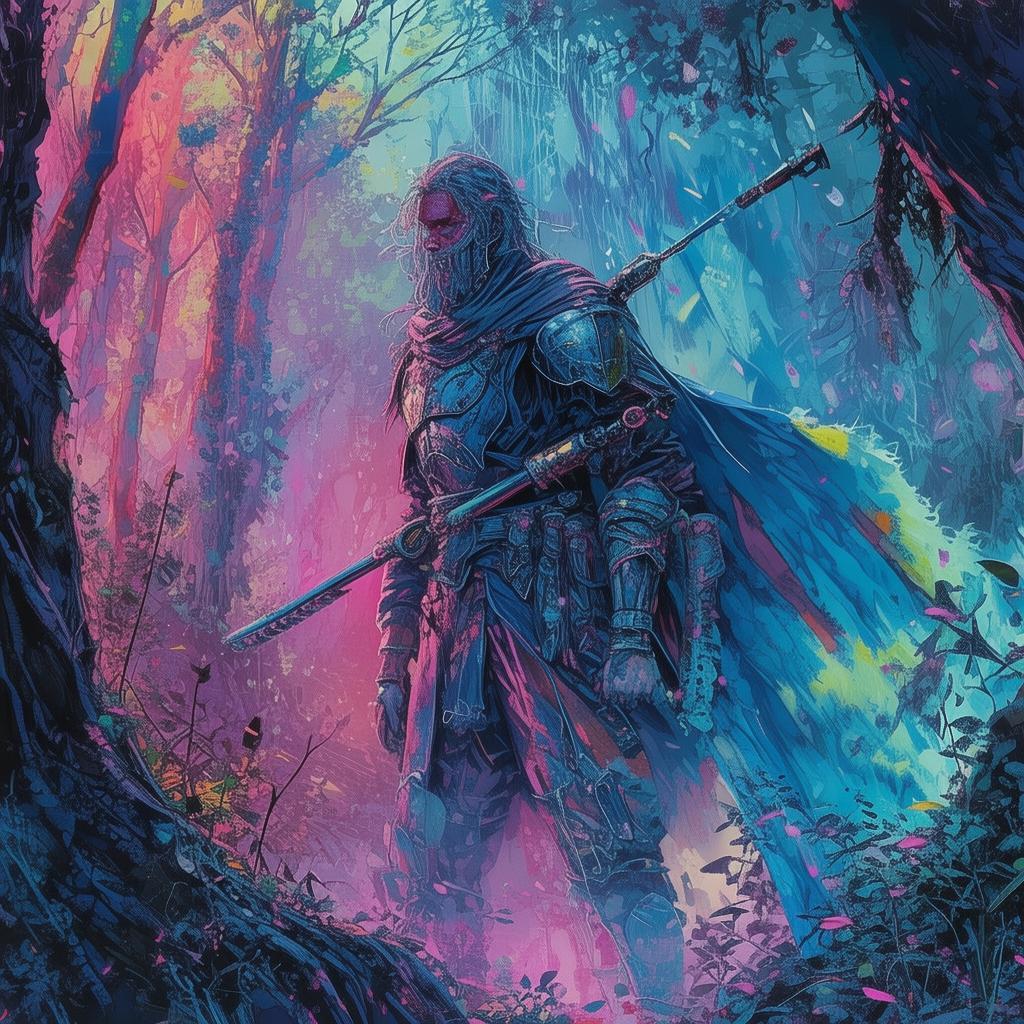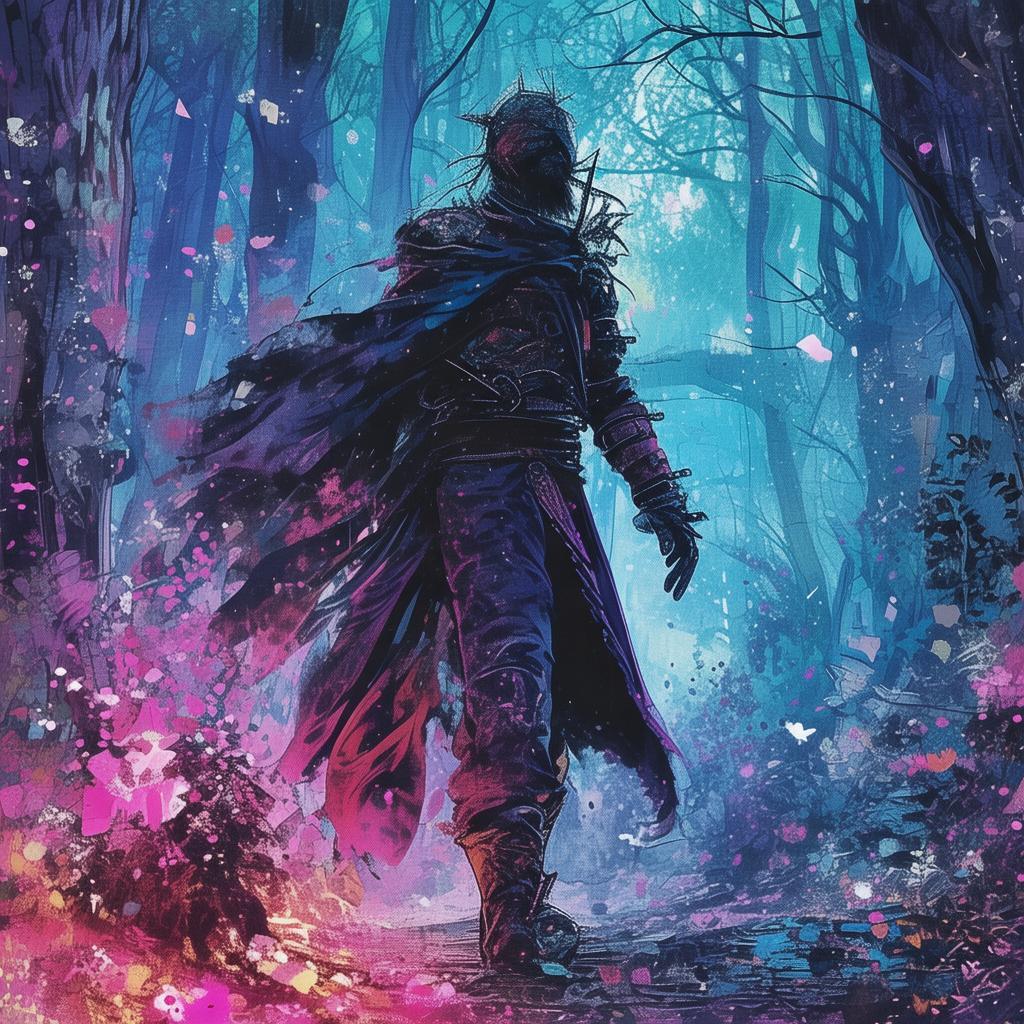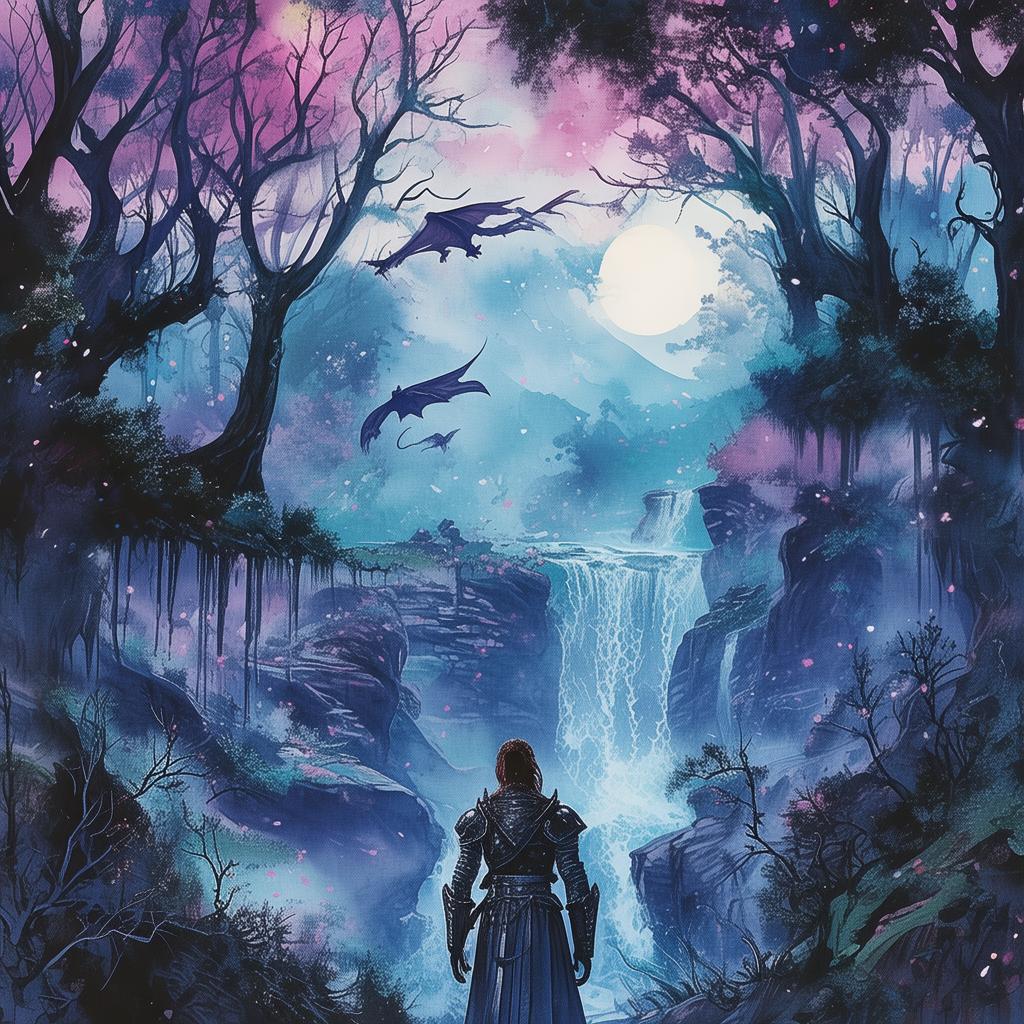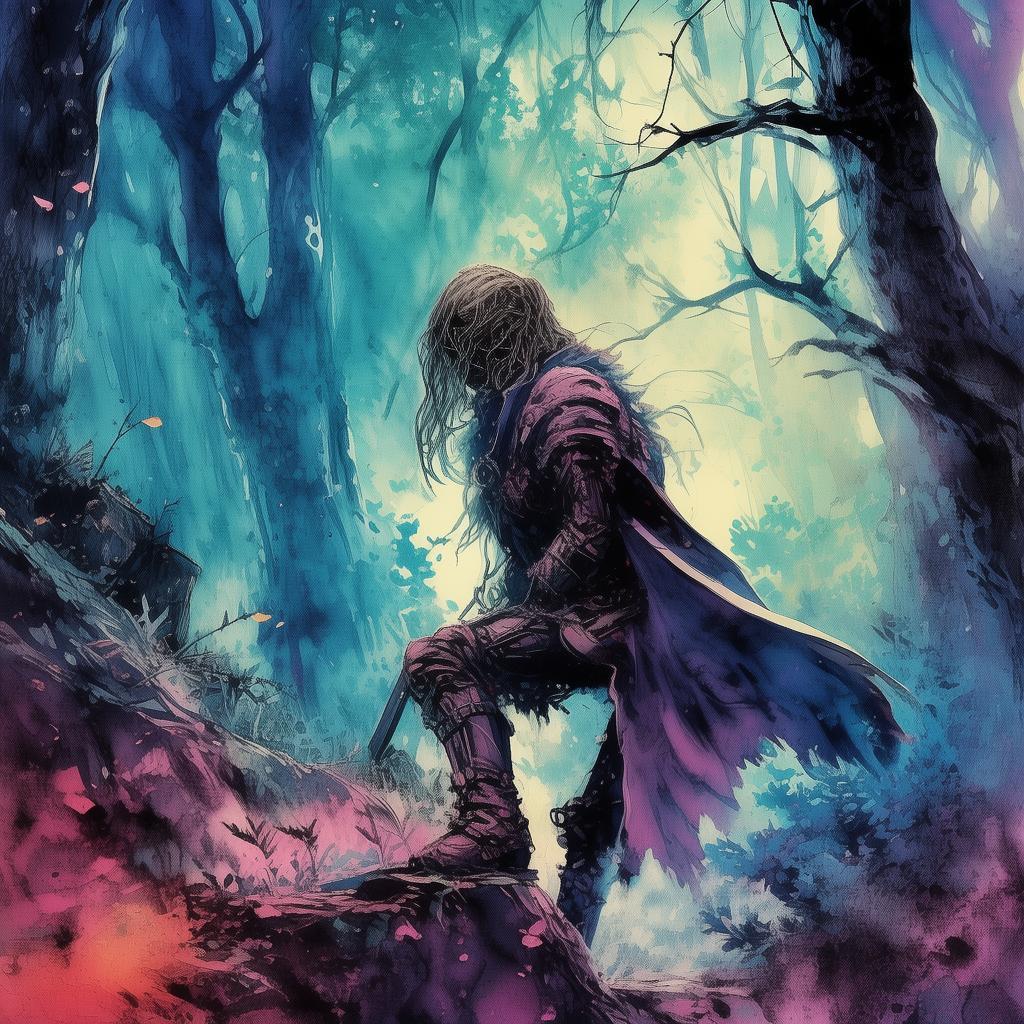Whispers of the Unseen: Echoes of Defiance
In the shadowed corners of a land where the night was as oppressive as the rule of the iron fist, there lived a young man named Kael. His eyes held the fire of a thousand suns, but his voice was hushed, like a whisper against the wind. Kael was a musician, a maestro of the hidden symphony that danced in the hearts of the oppressed. His compositions were not to be heard in the grand halls of the elite, but in the secret gatherings of the resistance, where they were the whispered words of the silent majority.
The story begins on a moonless night, as Kael sat before his instrument, a lute with strings that seemed to sing of their own volition. The city was alive with the hum of the machines and the clatter of the streets, but Kael's workshop was a sanctuary, a place where the music could be born without fear of the ear of the authorities. The lute's strings were strung tight, each one a thread in the tapestry of defiance that Kael wove with his fingers.
His latest composition was a dirge, a lullaby for the weary, a lullaby that would soon be the anthem of the resistance. The music was both soothing and haunting, a paradox that would become its greatest strength. As he played, Kael felt the vibrations of the music course through him, resonating with the very essence of his soul.
"The strings hum with the truth of our silent cries," Kael whispered to himself, his fingers dancing over the strings with a life of their own. "They speak of what we dare not say."
It was during one such clandestine gathering that the music of Kael began to spread like wildfire. The resistance, a group of like-minded souls fighting against the oppressive regime, had always sought a way to communicate without the fear of detection. Kael's music was the key. Each note was a message, each melody a call to action.
"Play it again, Kael," whispered the leader of the resistance, a woman known only as the Shadow. Her eyes glowed with the light of defiance. "Let them hear our voice."
Kael nodded, his heart pounding with a mix of fear and exhilaration. As he played, the room filled with a sound that was both beautiful and terrifying. The music seemed to pierce through the walls, reaching the ears of the unsuspecting citizens who were oblivious to the undercurrent of dissent that swirled beneath the surface.
Word of Kael's music spread quickly. It was not just the notes that resonated; it was the message, a call to unity and strength. The oppressed began to whisper the melodies, passing them from one to another, each note a seed of rebellion.
The authorities were not blind. They sought to silence Kael and his music, but they underestimated the power of sound. The music had become a virus, infecting the minds of the people, turning them into a force that could not be ignored.
One night, as Kael played his lute in the safety of his workshop, a knock came at the door. He opened it to find a soldier standing there, his face cold and unyielding.
"You are under arrest for inciting rebellion," the soldier said, his voice a monotone that did not budge beneath the weight of his command.
Kael's eyes narrowed, but he did not resist. He knew the price of his defiance, and yet, he could not help but feel a surge of pride. "Then I shall go with honor," he replied, his voice steady and resolute.
The journey to the prison was a silent one, but Kael's spirit was not. As he walked the corridors, he sang softly, his voice reaching the ears of his fellow prisoners, who joined in, their voices a chorus of defiance that echoed through the cells.
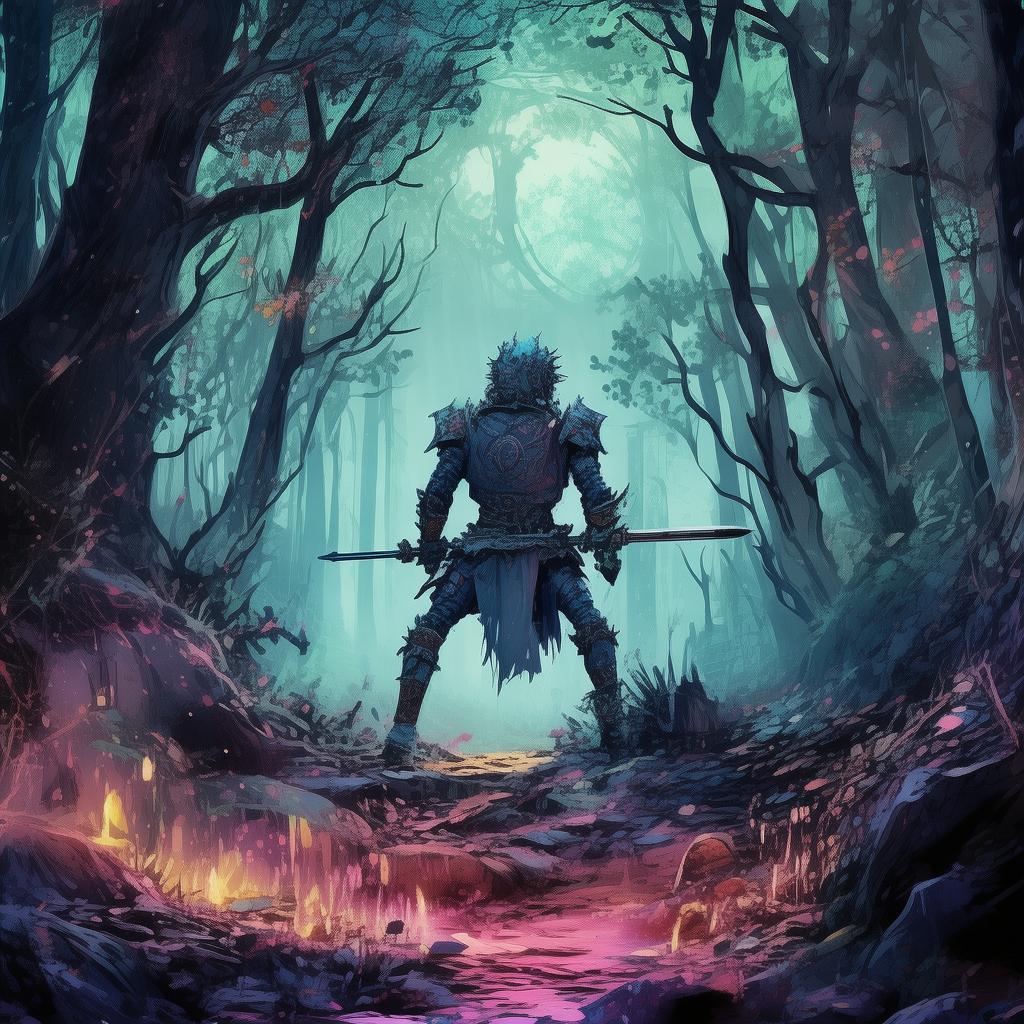
Days turned into weeks, and the music did not fade. It grew stronger, more powerful, a testament to the unbreakable spirit of the people. The soldiers who once guarded Kael now listened, their hearts touched by the music that had become a symbol of hope.
Finally, the day came when Kael was brought before the leader of the regime. The room was filled with the echoes of his music, a reminder of the power of sound and the resilience of the human spirit.
"Your music has changed us," the leader admitted, his voice trembling. "It has given us courage."
Kael stood tall, his eyes reflecting the light of victory. "Then let it be a beacon for all who fight for freedom," he said, his voice a whisper that turned into a roar.
And so, Kael's music became the soundtrack of the revolution. It was not just a song; it was a call to arms, a reminder that even in the darkest of times, there was always hope, and hope could be heard in the whisper of a lute.
As the regime fell, the people of the land emerged from the shadows, their hearts filled with the music that had given them strength. They had been heard, and their defiance had resonated through the land, echoing in the hearts of all who had ever been oppressed.
The story of Kael and his lute became a legend, a tale of audio defiance that would be told for generations to come. It was a reminder that the power of sound could transcend the barriers of oppression, that even in the quietest of whispers, there was a voice that could be heard across the land.
✨ Original Statement ✨
All articles published on this website (including but not limited to text, images, videos, and other content) are original or authorized for reposting and are protected by relevant laws. Without the explicit written permission of this website, no individual or organization may copy, modify, repost, or use the content for commercial purposes.
If you need to quote or cooperate, please contact this site for authorization. We reserve the right to pursue legal responsibility for any unauthorized use.
Hereby declared.
